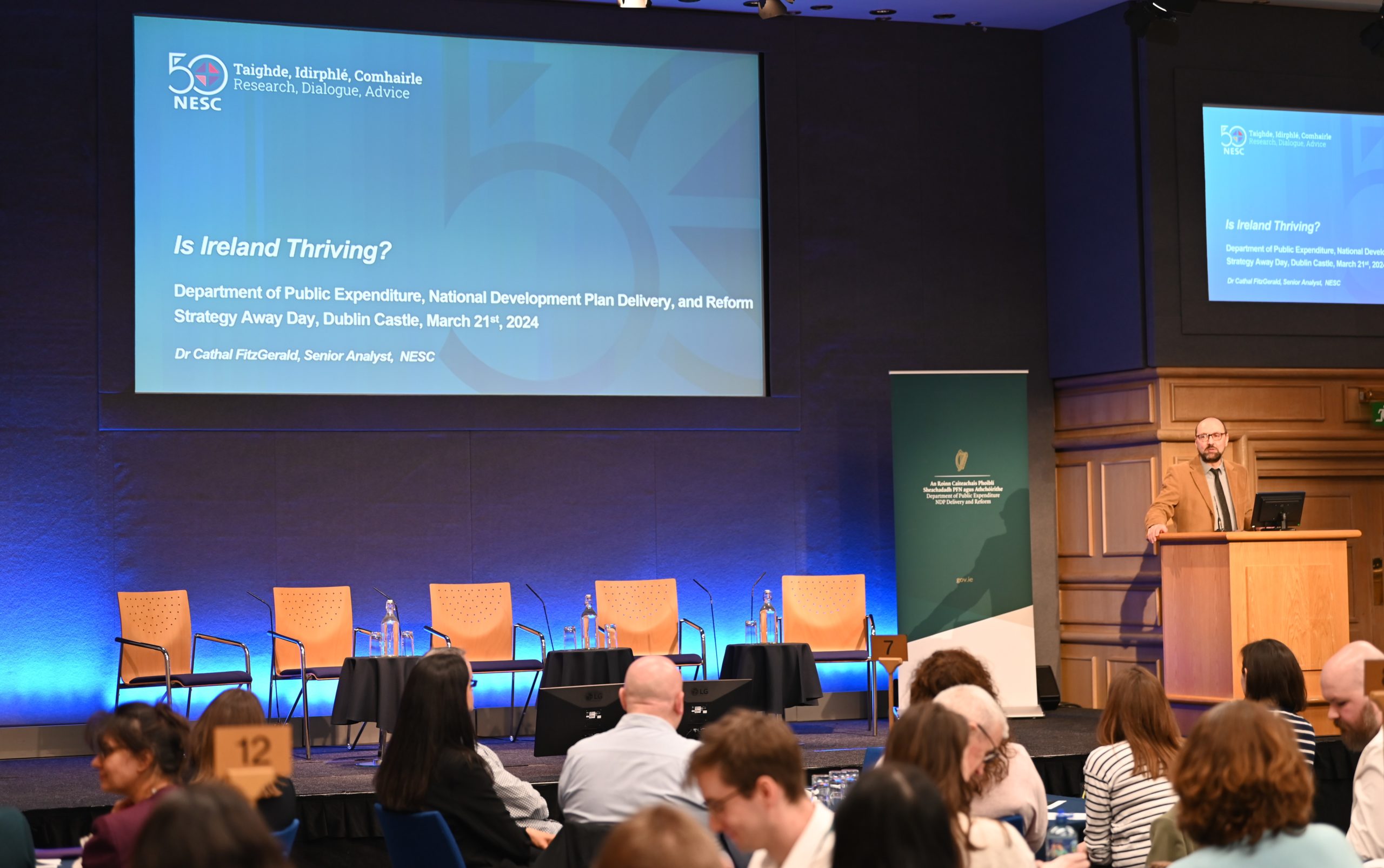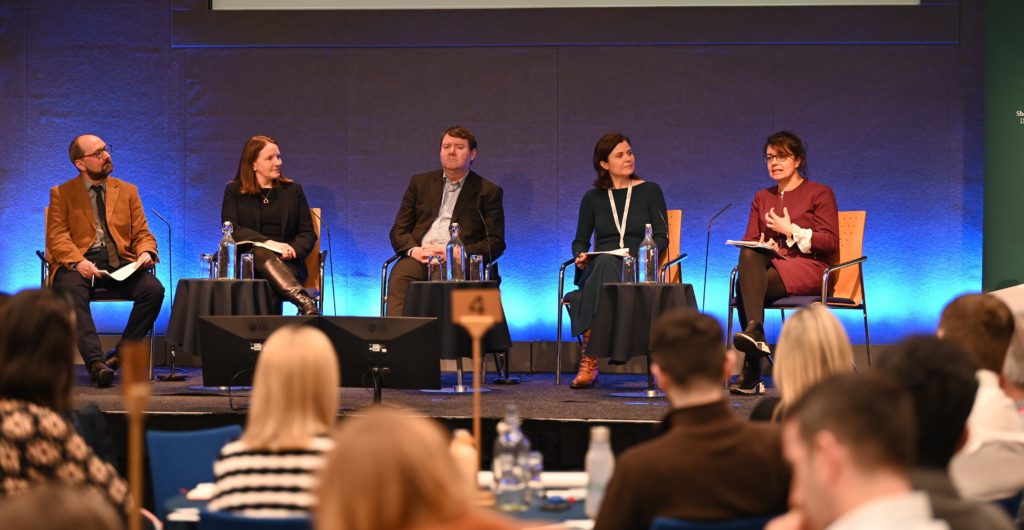You are here: Home > News & Events > News: Policy System Must Bridge the Gap Between ‘Thriving Economy’ and ‘Lived Experiences’
News: Policy System Must Bridge the Gap Between ‘Thriving Economy’ and ‘Lived Experiences’
- 27 March 2024
- Topics: Economic NESC@50 Social
- Types: News

‘Business as usual in national policy is not likely to solve the complex problems Ireland is facing’ – this was a key message from NESC’s Dr Cathal FitzGerald to the recent strategic policy event hosted by the Department of Public Expenditure, National Development Plan Delivery, and Reform (DPER) in Dublin Castle.
Dr FitzGerald was asked to set the scene for a strategic discussion on public expenditure policy by addressing the question, ‘Is Ireland Thriving?’.
“Ireland is thriving today in many important ways, such as life expectancy, healthy life years, life satisfaction, social connections, education, employment, income after redistribution, long hours worked, how democracy works, social progress, and competitiveness”, he said.
“But there are clear capacity and distributional issues. We have real problems in relation to housing, cost of living, infrastructure and services, unemployment among people with disability, incidence of low pay, trust in the government by younger people, water and waste management, and discrimination etc.”.
“It is also important to distinguish between current and future performance. When it comes to ‘thriving tomorrow’ there is a lot of work needed. There are huge challenges faced by Ireland and the international community in living within planetary boundaries. No country has delivered required social standards and stayed within sustainable limits”, Dr FitzGerald stated.
“Overall, our analysis finds that headline metrics of success, and even the detailed analysis, will only tell you so much. They can mask something which is crucial: the lived experience of many people”, he told the conference.
Dr FitzGerald then participated in a panel discussion chaired by Marianne Cassidy (DPER), alongside Seamus Coffey (UCC), Martina Lawless (ESRI / Dept. Finance), and Jasmina Behan (DPER).
During that discussion Dr FitzGerald spoke about how transformation was rare in policy development and that even incremental changes must be guided by a vision and be coherent. He said that steady public capital investment could address pro-cyclical problems, while policy reviews such as a revised national planning framework and development plan provided one opportunity for innovation. He offered views on how more long-term ‘cathedral thinking’ can be infused into expenditure policy, via so-called ‘Ulysses pacts’ and ‘technocratic lay-bys’. Dr FitzGerald also stated that the understandable focus on the risk posed by volatile corporate tax receipts from multinational firms must not crowd out the attention needed for indigenous firms, many of whom currently fall outside of the remit of support agencies.
Dr FitzGerald’s presentation can be found here.



